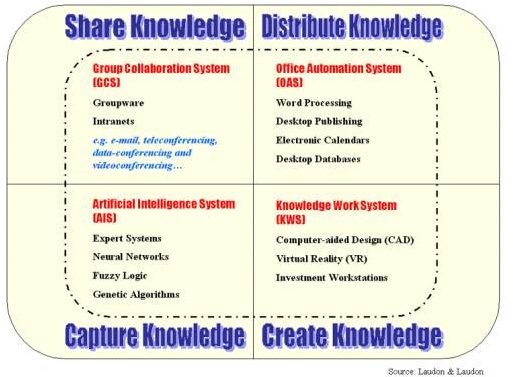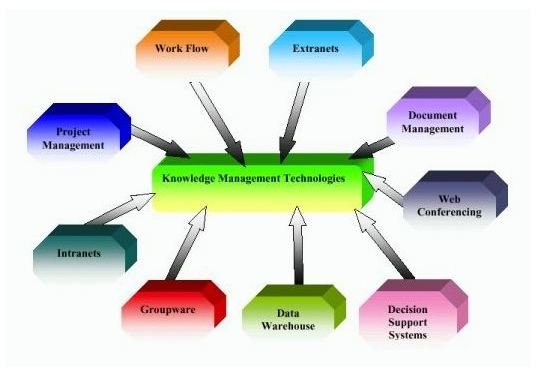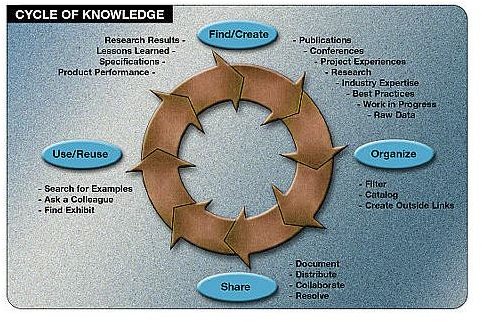What are the Fundamentals of Knowledge Management?
Knowledge Management: The Essentials
There are several program layers necessary to construct the knowledge management scheme. First is customer knowledge and knowledge in processes. When an organization works with a customer base, essential cultural elements are brought over from the customer to the business.
Next you have knowledge involving products, processes, and people. Some of these deal with the customer base, while other knowledge structures deal with the internal knowledge garnered by people who work in the business. This leads to organizational memory followed by knowledge in relationships.
Each organization has a past that shows its successes and failures; knowing how each was met brings an understanding of the areas where collaboration was successful. For example, were the successes the result of one person or were there groups of people working together to achieve the collective goal? Were the failures the result of one person or a collective failure? The knowledge that develops from this assessment creates the final essential knowledge base--knowledge assets.
See Also: Knowledge Management: Five Distinct Approaches
Knowledge Management Practices – Creating and Discovering

It is one thing to have an archive of knowledge, but the practices that create that base of information are important. There are the creating and discovering of business practices. These can involve creativity techniques like ad-hoc discussions. There is text and data mining, which looks for patterns as well as anomalies. There is also environmental scanning, which looks at how processes and procedures formed in response to the environment. This, in turn, leads to re-creation of business activities through simulations, which finally focuses on content analysis.
Knowledge Management: Tools and Techniques
In order to manage the knowledge effectively that has accumulated, there are a variety of tools and techniques to use. Groupware, document management, KM suites, and intranets are among infrastructure toolsets. There is concept mapping plus creativity tools, both

of which help the thinking process. And this is not to mention search engines, intelligent agents, and data mining; these are discovery tools. However, there is a need for storage and organizing tools like data warehousing, XML, and online analytical processing (OLAP).
Some other tools, which are important, include case-based reasoning, which leads to decision support. The business case provides analysis on what transpired and provides a basis for a decision. In other words, no decision is free-for-all based; rather it comes from impact of the business operations.
Knowledge Management: Success Factors
Knowledge management has a goal: Find out what made operations successful. So there are a variety of success factors. One is

knowledge leadership, which promotes a compelling vision of what the company is trying to attain.
Think Steve Jobs, the head of Apple. His vision is for the company to make the best electronic devices, that are fun to use, that are appealing to the public, that are not available elsewhere (at least not like Apple’s), that are unique, and which stretch the imagination of its employees, not to mention the public. This offers clear business benefits for the company.
There are also systematic processes that come into play to make the knowledge more important because knowledge is like a stream, which merges into a river, where the inputs all come into one area and moves the company forward.
Summary
The fundamentals of knowledge management include creating and discovering knowledge in the organization, using tools and creative techniques that affect the information, and there are success factors that already hold a lot of knowledge that shows how the business operated in the past.
See Also: Knowledge Management vs. Content Management
Sources
Skyrme, David J. KM basics, retrieved at https://www.skyrme.com/resource/kmbasics.htm.
Levinson, Meredith. Knowledge management definitions, Cio.com, retrieved at https://www.cio.com/article/40343/Knowledge_Management_Definition_and_Solutions
Image 1: LoneWolf
Image 2: UGC: Knowledge Management in Online Education
Image 3: Unc: What is Knowledge Management
Image 4: Congrx: Mapping Knowledge
